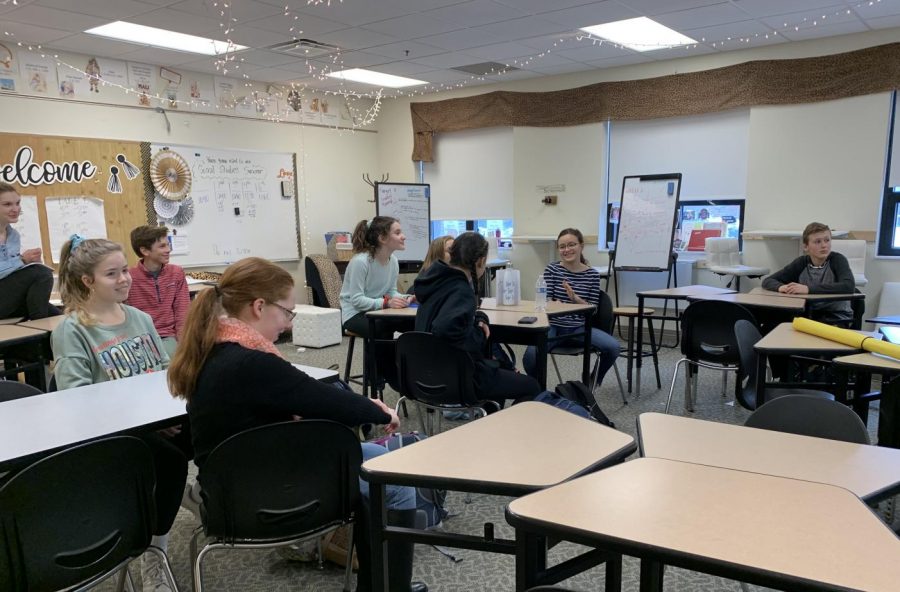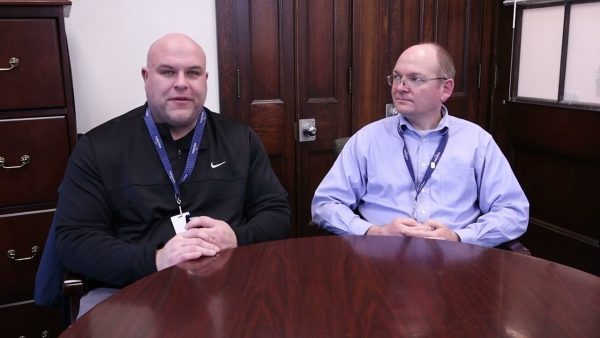Promotion, positivity and prevention
Oakwood implements Hope Squad to help students with mental health
Hope Squad is a new program that will allow students to talk about their mental health, promote talking about personal problems and help prevent mental illnesses. Hope Squad will try to have a positive impact and bring change.
Hope Squad is hoping to have “The Grove” wellness space up and running with a soft start beginning March 16, according to Paige Lumpkins, Hope Squad co-adviser, said. The wellness space will be a place for students to talk to other students about their problems after scheduling a meeting.
“I think Hope Squad will change Oakwood in a positive manner and I think mental health will become an even more talked about topic because right now people still feel kind of ‘in a shell’ when talking about mental health,” Sam Stack (11), Hope Squad member, said. “After this club is put in place, mental health will become an even more talked about topic.”
This “in a shell” attitude of not talking about personal issues can be a problem. According to the Better Health Channel, talking about your problems can release pent-up feelings. People talking about their problems allows them to receive opinions and possible help from others.
Not showing emotions is more common among men: Priory states that 40 percent of men won’t talk to anyone about their mental health, and a goal of Hope Squad is reducing this.
“I think Hope Squad will talk about mental health and not make it such a negative thing,” Stack said. “Right now people don’t talk about mental health, but once this club gets rolling and people start coming in and talking, others seeking help will see that Hope Squad is a positive thing. I think the confidence will grow as the club goes on.”
Hope Squad members are students you can trust and talk to about your problems.
“I joined Hope Squad because I wanted to be able to have the skill sets that can help people that come to me with their problems,” Stack said. “If a person comes to me, that means they trust me, so I would like to be able to give them the right answers back.”
According to Livescience.com, 70 percent of U.S. teens who have emotional or behavioral difficulties receive mental health services.
70 percent of the teens affected is a large amount, but it’s not as good as it could be. The teens don’t always continue to receive treatment in adulthood, and Hope Squad might stimulate seeking help in adulthood.
According to MentalHelp.net, one out of five adults live with a mental illness in the United States with approximately 60 percent of the people affected not receiving any mental health services.
60 percent is a high amount of adults not receiving help, and this may be because of adults not receiving proper help while they are teens. A result of Hope Squad could be an increase in the number of teens continuing or seeking mental health services during adulthood and college.
Having mental health issues should not be looked down upon, and are okay to discuss. If you have any problems, do not be afraid to talk to Hope Squad members, teachers and other students.







